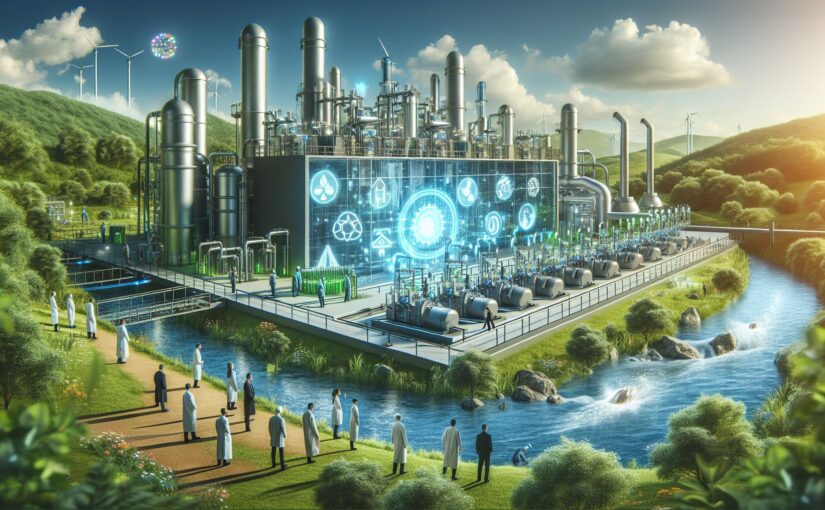According to the United Nations, more than 80% of wastewater generated by mankind flows back into the ecosystem without being treated or reused [^1^]. However, in a world aiming towards sustainable futures and clean energy, wastewater – typically seen as a problem – can be an important resource.
Renewable energy from wastewater, an innovative and environment-friendly solution, promises not only clean water but also an alternative energy source. Let’s delve deeper into this green concept.
The Concept
The process of extracting renewable energy from wastewater works on the principle of microbial fuel cells (MFCs). These systems utilize specific types of bacteria, known as exoelectrogens, which have a unique capability of transferring electrons generated during metabolic processes to an external electrode. This interaction results in the generation of electricity.
The Benefits
One of the main benefits of renewable energy from wastewater is high-energy efficiency. Typically, wastewater treatment consumes a great deal of energy, but when biological waste is harvested for energy production, we not only recover the energy used for treatment but also generate a surplus.
Alongside this, while traditional wastewater treatment often comes with a range of byproducts, many harmful to the environment, the MFC method dramatically reduces such harmful byproducts, presenting an eco-friendly solution.
Additionally, using wastewater for renewable energy curtails the pressure on natural resources conventionally used in energy production. This was reaffirmed by the International Energy Agency, which stresses that bioenergy is crucial for a global clean energy transition [^2^].
Looking Ahead
However, while the technology offers numerous benefits, developing it into a large-scale solution poses several challenges. For instance, researchers must improve the efficiency of MFCs to ensure they can function effectively at high volumes.
Despite these obstacles, considerable research is underway to augment the production of renewable energy from wastewater. Through these efforts, wastewater, once a problem, might evolve into a crucial component of our future energy portfolio.
As users and consumers of energy, our role is to keep pace with this technological transition. Renewable energy from wastewater unlocks the potential for a sustainable energy future. As we transition to green energy, welcoming and understanding these technological innovations is a collective responsibility we share for our sustainable future.
[^1^]: United Nations Water – Wastewater Management
[^2^]: International Energy Agency – The Role of Bioenergy
